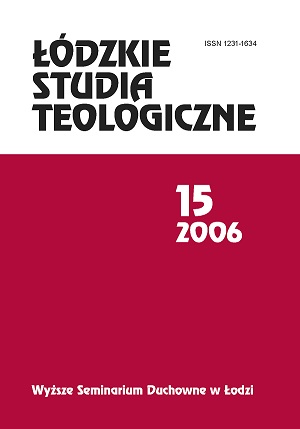Kształtowanie się struktury organizacyjnej i zasad funkcjonowania Rady Konferencji Biskupów Europy (CCEE)
The formation of organization structure and of the rules of functioning of the Council of Episcopal Conference of Europe (CCEE)
Author(s): Waldemar BartochaSubject(s): History of Church(es), Management and complex organizations, Systematic Theology, Sociology of Religion
Published by: Wyższe Seminarium Duchowne w Łodzi
Keywords: The Council of the European Bishops' Conference; statute; legal structure; reorganization;
Summary/Abstract: This article is dedicated to the presentation of the process of formation of the organizational structure and of the functioning mechanism of CCEE. The CCEE was founded to regulate the forms of collaboration among the singular episcopates in Europe. On March 23-24, March 1971, from the initiative of Pope Paul VI, a meeting of seventeen representatives of European episcopal conferences was organized. They approved the CCEE directive rules, designed the president, two vice presidents and members of the secretariat. On 10 January 1977 the Congregation for Bishops approved the CCEE and recognized its statutes ad experimentum. The needs linked to the process of the new evangelization and the events of 1989 indicated the need for the reorganization of the Council structure. At the request of Pope John Paul II, the presidents of the European episcopal conferences were appointed ordinary members of the Council. They committed themselves to the implementation of the reform of the CCEE structure, which led to the drafting of the new statutes, approved on December 2, 1995 by the Holy See. In light of the norms of current statutes, CCEE appears as a different institution from national episcopal conferences, because it is not made up of singular bishops, but from whole episcopal conferences, which send their representatives to participate in plenary assemblies. The CCEE does not possess legislative power in contrast to the episcopal conferences of each country, because its function is limited to the guarantee of collaboration between the episcopates of European nations.
Journal: Łódzkie Studia Teologiczne
- Issue Year: 15/2006
- Issue No: 1
- Page Range: 3-23
- Page Count: 21
- Language: Polish

